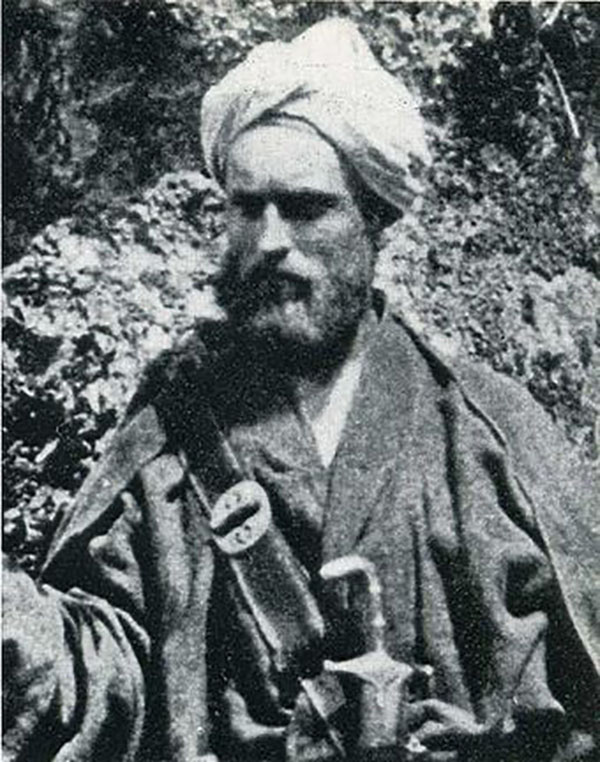George Jonas Whitaker Hayward (c. 1839 - July 18, 1870) was an English explorer during the Great Game period. He is known to have been born to a land agent near Leeds, was educated at the Forest School in north London, and in 1859 was made an ensign in the British Army. He was stationed in Multan, India (now Pakistan) with the 89th Foot. Though he was commissioned in 1863, he would leave the army two years later. He surfaced in England in 1868, petitioning the Royal Geographical Society to be hired as an explorer in Central Asia. Perhaps to his surprise, the Society supplied him with money and kit, with instructions to survey the Pamir Mountains. He was the only explorer during the Great Game to be funded by the Society. At precisely the same time that Britain was consolidating its hold on India, and Russia was exploding into Central Asia, Hayward was sent to map out the unexplored and formidable terrain between the two empires, then governed by lawless tribes and murderous despots. His travels took him to Kashgaria in an attempt to explore the mountains from the northeast; deterred from that route, he instead explored the course of the Yarkand River, the Kun Lan and the Karakoram mountains. Following on the heels of this journey, Hayward in 1869 made an attempt northwards through the Himalayas, via the Yasin valley; there he passed through a war zone between Hindu Kashmiris and Muslim Dardistan, witnessing Kashmiri atrocities about which he published on his return to India. The political fallout from his criticism of a British ally and vassal would lead Hayward to sever his association with the Royal Geographical Society.
In 1870 Hayward again attempted to cross the mountains via the Yasin Valley, proceeding to the Darkot Pass. Just short of reaching the Oxus river and the Pamir Mountains, he was attacked and murdered on July 18, 1870. It is not known who was behind the killing. The two main suspects were Aman ul-Mulk, in whose Kafiristan domain Hayward was then traveling, or the Maharaja of Kashmir (for revenge for Hayward's revelations of Kashmiri atrocities in Dardistan.)
In 1870 Hayward again attempted to cross the mountains via the Yasin Valley, proceeding to the Darkot Pass. Just short of reaching the Oxus river and the Pamir Mountains, he was attacked and murdered on July 18, 1870. It is not known who was behind the killing. The two main suspects were Aman ul-Mulk, in whose Kafiristan domain Hayward was then traveling, or the Maharaja of Kashmir (for revenge for Hayward's revelations of Kashmiri atrocities in Dardistan.)


